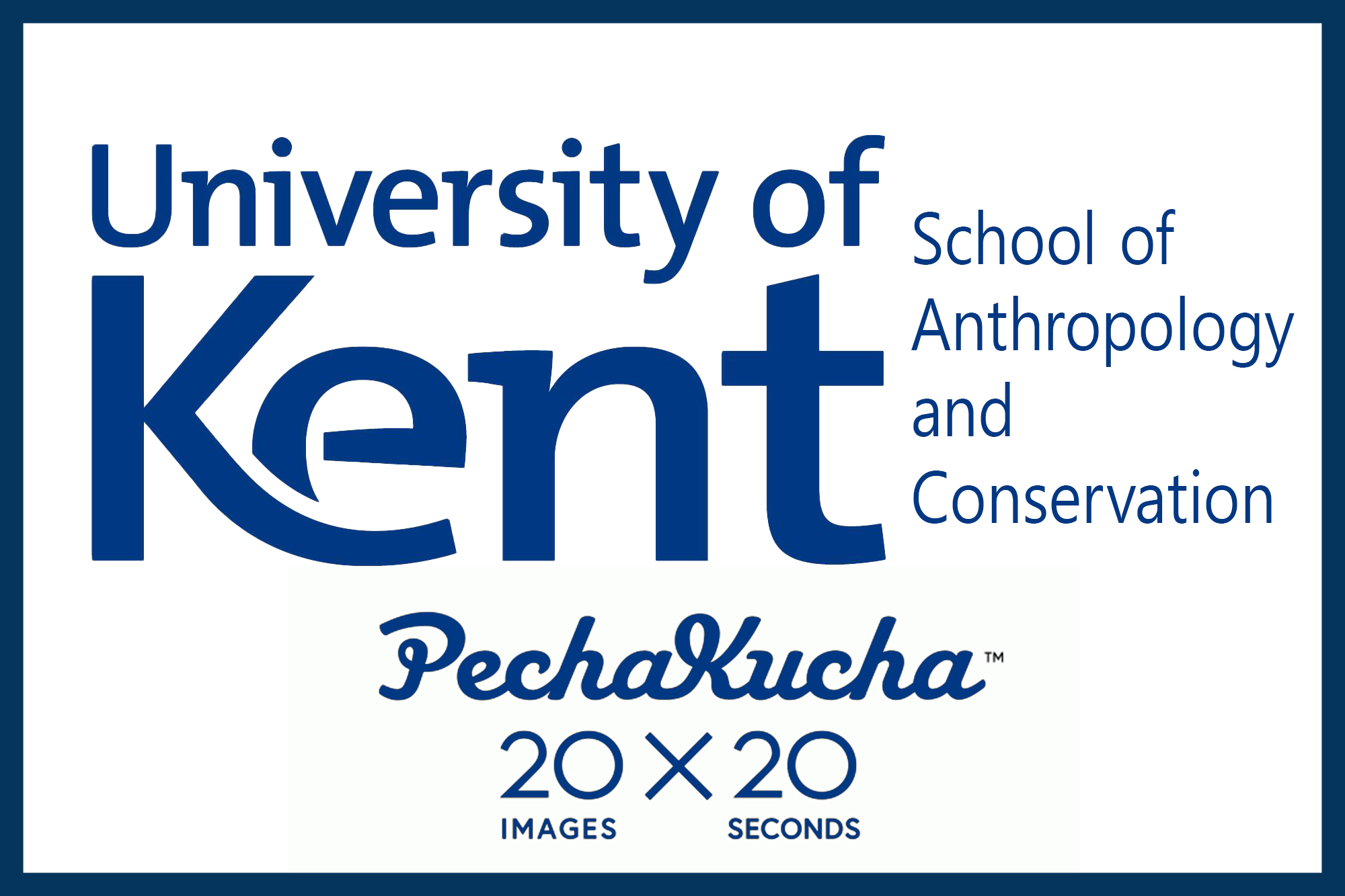PechaKucha is the Japanese word for ‘chitchat’. When applied to a study environment, it refers to keeping presentations short and sweet. Academics, no matter what discipline they are in, can have a habit of running over…
In 2003, Astrid Klein and Mark Dytham created this new style of event which would limit speakers to 20 slides of 20 seconds. Only 400 seconds to give their whole presentation. This style of presentation has gained popularity as it’s a great way to streamline your talk. It has been used all over, in business, schools and, of course, universities. In a fast-paced world, this style is particularly engaging as it forces those talking to focus on the most important aspects of their topic.
At the School of Anthropology and Conservation (SAC), we want to challenge our academics to take part in our own PechaKucha-style event. But with a catch. This time it will be their students telling them that they are running out of time in their presentations. For all those times students have been so aware of the time limit creeping up on us, they will get to watch that same apprehension in their lecturers and seminar leaders. It is also easy to forget that, aside from teaching, our lecturers are active researchers: this event gives everyone a chance to hear a little more about what some of them are up to.
Anthropology Event
For our Anthropology event on Friday 28th August at 14:00, we have three fantastic speakers:
- Talking about his specialism, Environmental Anthropology, we have Dr Rajindra Puri, who is a Senior Lecturer in this subject, having studied the historical ecology of a rainforest valley in Indonesian Borneo for the past 25 years.
- Dr Devin Finaughty is a Lecturer in Biological Anthropology specialising in forensic anthropology with a particular interest in the decomposition ecosystem. He is going to be giving a research-focused presentation on his work investigating the role of the Cape grey mongoose as a driver of decomposition in Cape Town, South Africa, and the forensic implications thereof.
- Dr Judith Bovensiepen, Senior Lecturer in Social Anthropology, is our third and final speaker. Her research focuses on the complex relationships between people and their environments during periods of rapid social and historical change. She will be talking to us about her current research about the politics of oil in East Timor.
Conservation event
During our Conservation event on Tuesday 1st September at 16:00, we also have three fantastic speakers, but this time we’ve got a graduate, a PhD student and a lecturer:
- Katrine, a recent Wildlife Conservation graduate, will be telling us all about her incredible dissertation project on otters.
- Kate Allberry, studying for a PhD in Biodiversity Management at the Durrell Institute of Conservation and Ecology (DICE), is researching the impacts of habitat loss and climate change on big cats. Having recently returned from the dense rainforests of Peninsular Malaysia, she will tell the story of her quest to find DNA from some of South Asia’s most elusive felines.
- Finally, we have Dr Joseph Bull, Senior Lecturer in Conservation Science, who carries out research into the impacts of industry on nature. He will talk about his fieldwork in the remote desert and steppe ecosystems of Central Asia, including ongoing efforts to conserve one of the world’s most critically endangered mammals on the shores of the Aral Sea.
Human Geography and Environmental Social Sciences event
During our Human Geography and Environmental Social Sciences event on Tuesday 8th September at 15:00, there are three exciting and varied speakers from both the academic staff and student community:
- Katie Hargrave-Smith is a third year Environmental Social Scientist and she will be using the example of aviation and carbon offsetting to focus on the complexities of being sustainable in the age of capitalism and consumerism.
- Dr Jonathan Rock Rokem is Lecturer in Human Geography, carrying out research on urban inequality and transport mobility. He will talk about his fieldwork in Stockholm and Jerusalem, including a spatial analysis of urban accessibility from a comparative political perspective.
- Dr Robert Fish is a human geographer and environmental social scientist, whose research is focused on the interactions between people and the natural world. In this talk, Rob will share with you some of his growing fascination with small islands and explain what we can more broadly learn from them as environmental researchers, drawing on work he is doing in the South Atlantic, including the Falklands Islands, Ascension Island, St Helena and Tristan da Cunha.
How do I get involved?
For returning students, this event is a chance to reconnect with the School after spending such a long time away (and maybe to watch your lecturers struggle!). For new students, this is a great way to welcome you to the SAC community. We are sure that, after this event, you’ll feel at home within our School and even more excited to get stuck into the world of Conservation and Anthropology. Plus, it’s always nice to see familiar faces once you start your university journey.
To book, please use the online form.
We hope to see you all there!

